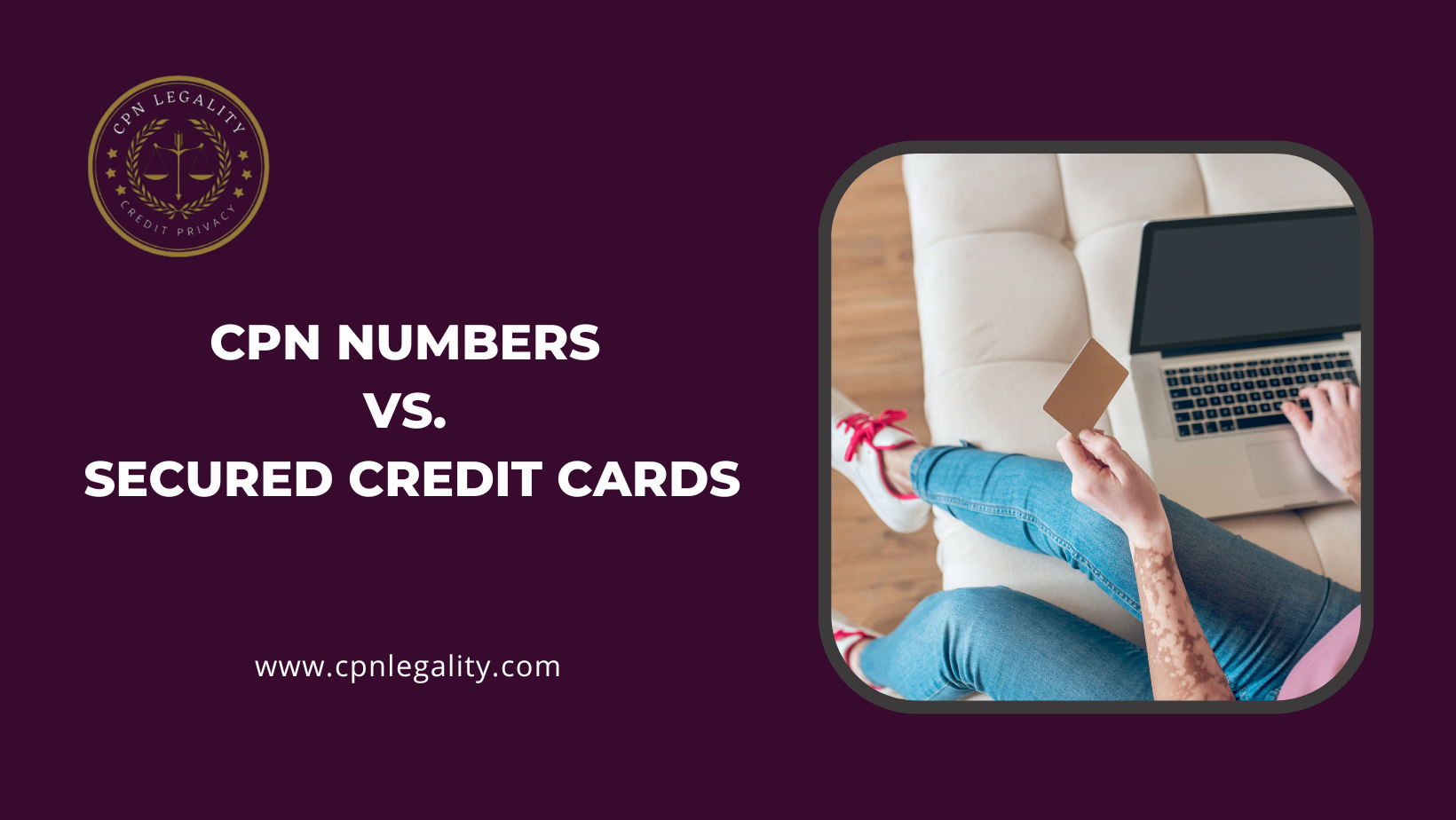
3-Step Formula to Financial Success With CPN Numbers
Achieve financial success with our 3-Step Formula leveraging CPN Numbers for a secure and prosperous future.

In today’s financial landscape, many people are searching for effective ways to improve their creditworthiness. Two popular methods that often come up in these discussions are CPN numbers and secured credit cards. But what are these options, and which one is the right choice for you?
In this article, we’ll explore the differences between CPN numbers and secured credit cards, helping you make an informed decision about your credit-building journey.
CPN stands for “Credit Profile Number,” sometimes referred to as a credit privacy number. A CPN is a nine-digit identification number used to build and repair credit. It’s important to note that using a CPN in place of your Social Security Number (SSN) for fraudulent purposes is illegal.
However, some credit repair companies offer legitimate CPN services to help individuals establish a separate credit profile.
Secured credit cards are traditional credit cards with one key difference – they require a security deposit. This deposit acts as collateral and sets the credit limit.
Secured credit cards are an excellent choice for individuals who are new to credit or have a damaged credit history. They provide a way to demonstrate responsible credit usage while minimizing risk for the issuer.
When considering your options for building or rebuilding your credit, understanding the differences between CPN numbers and secured credit cards is crucial. These two tools serve similar purposes but come with distinct features that can significantly impact your credit-building journey.
We discuss these disparities to help you make an informed choice.
One crucial difference between CPN numbers and secured credit cards is how they affect your credit report. Secured credit cards report your payment history to the major credit bureaus, helping you establish a positive credit history. In contrast, CPNs do not have the same impact on your credit report since they are not tied to your SSN.
Secured credit cards are entirely legal and widely accepted, making them a secure and practical choice for building credit. CPN usage, on the other hand, is a legal gray area, and there’s potential for misuse or scams, so caution is advised.
Secured credit cards provide a straightforward path to establish credit in your name. CPNs, while they can be legitimate, may not always result in building a strong credit history, as creditors may view them with skepticism.

Your choice between CPN numbers and secured credit cards largely depends on your current credit situation and goals. If you’re starting from scratch or need to rebuild your credit, a secured credit card is a safer and more widely accepted option. On the other hand, if you’ve explored other credit-building avenues and believe a CPN is right for you, ensure that you use it legally and transparently.
Consider your long-term credit goals. If you aim to establish a solid credit history that will be recognized by all creditors, secured credit cards are the better choice. If you’re looking for a more specialized solution, CPNs might be a consideration.
Pros:
Cons:
Pros:
Cons:
In the quest to improve your credit, you have options, but it’s essential to make informed decisions. CPN numbers and secured credit cards each have their own set of advantages and disadvantages. Your decision should align with your credit goals, current financial situation, and willingness to navigate the legal complexities.
Remember, building credit is a long-term endeavor that requires responsible financial behavior.
1. Are CPN numbers legal?
CPN numbers themselves are not illegal, but their use can be fraught with legal risks. It’s essential to use CPNs in a legal and transparent manner to avoid any legal issues.
2. Can I use a CPN to replace my SSN?
No, using a CPN as a replacement for your Social Security Number (SSN) for fraudulent purposes is illegal. A CPN should be used solely for legitimate credit-building purposes.
3. Do secured credit cards require a credit check?
Secured credit cards typically do not have strict credit requirements, making them accessible to individuals with limited or poor credit histories.
4. How long does it take to see improvement with a secured credit card?
Credit improvement with a secured credit card can vary, but many individuals see positive changes in their credit scores within a few months of responsible card usage.
5. Can I switch from a secured credit card to an unsecured one?
Yes, once you’ve built a positive credit history with a secured credit card, you can often transition to an unsecured credit card with a higher credit limit and additional perks.

Achieve financial success with our 3-Step Formula leveraging CPN Numbers for a secure and prosperous future.

Uncover hidden truths with the top 5 facts about CPN numbers that you never knew in this revealing exploration.

Discover the ins and outs of buying CPNs – Are they right for you? Explore the world of CPNs and their implications.

Protect your financial identity and learn about CPN numbers and identity theft in this comprehensive guide. Learn more today!
Call us now!
©2023 by CPN Legality. Managed by Abaani Tech